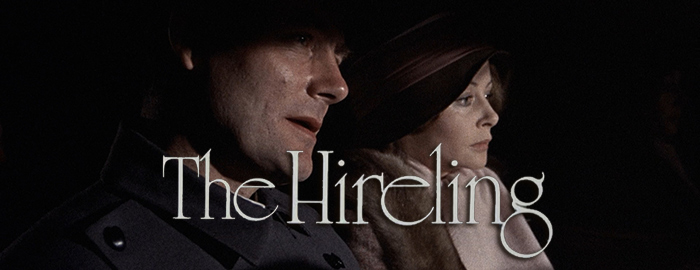
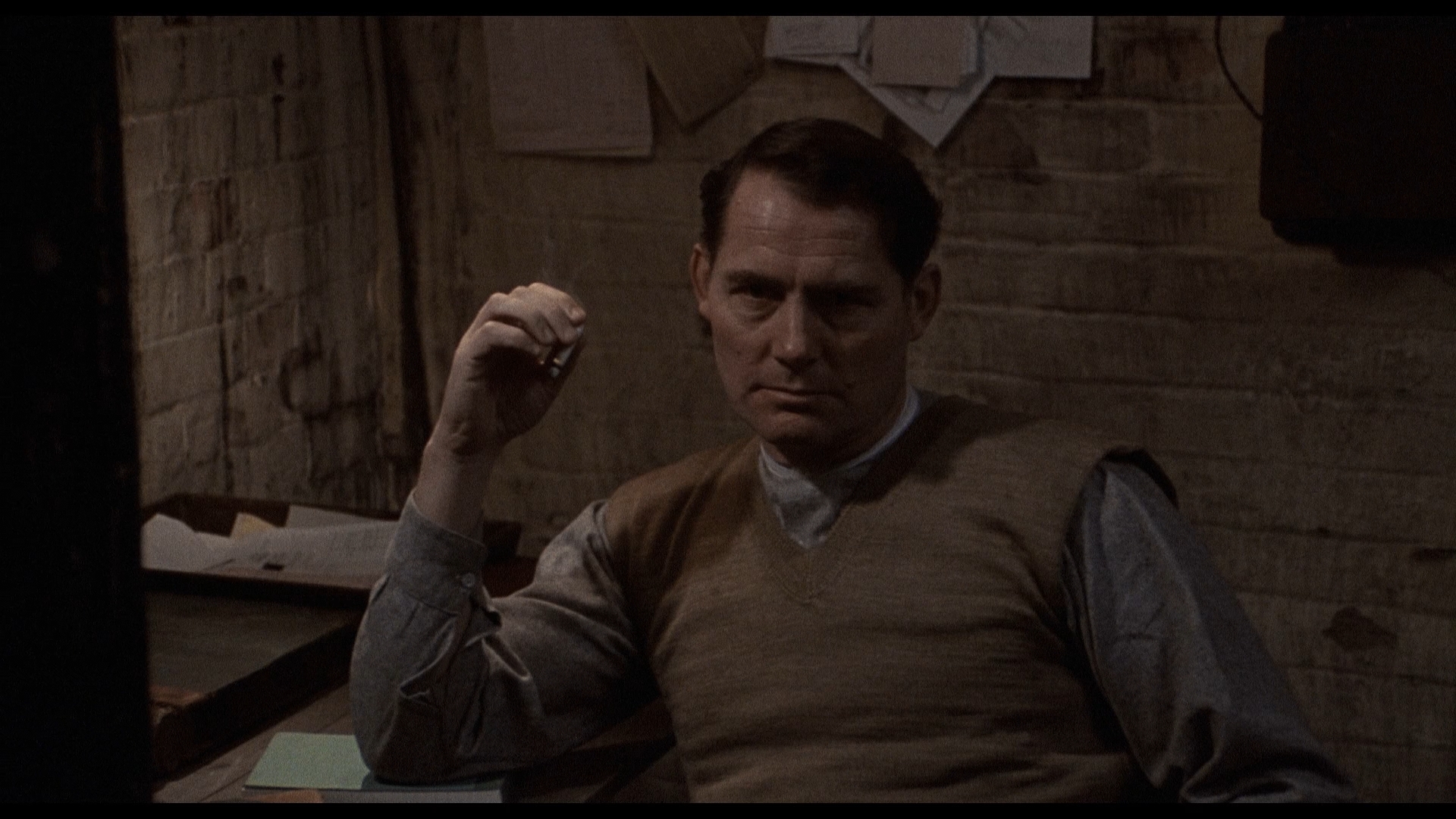 international success of 1971's The Go-Between, British producers tried to get lightning to strike twice two years later
international success of 1971's The Go-Between, British producers tried to get lightning to strike twice two years later 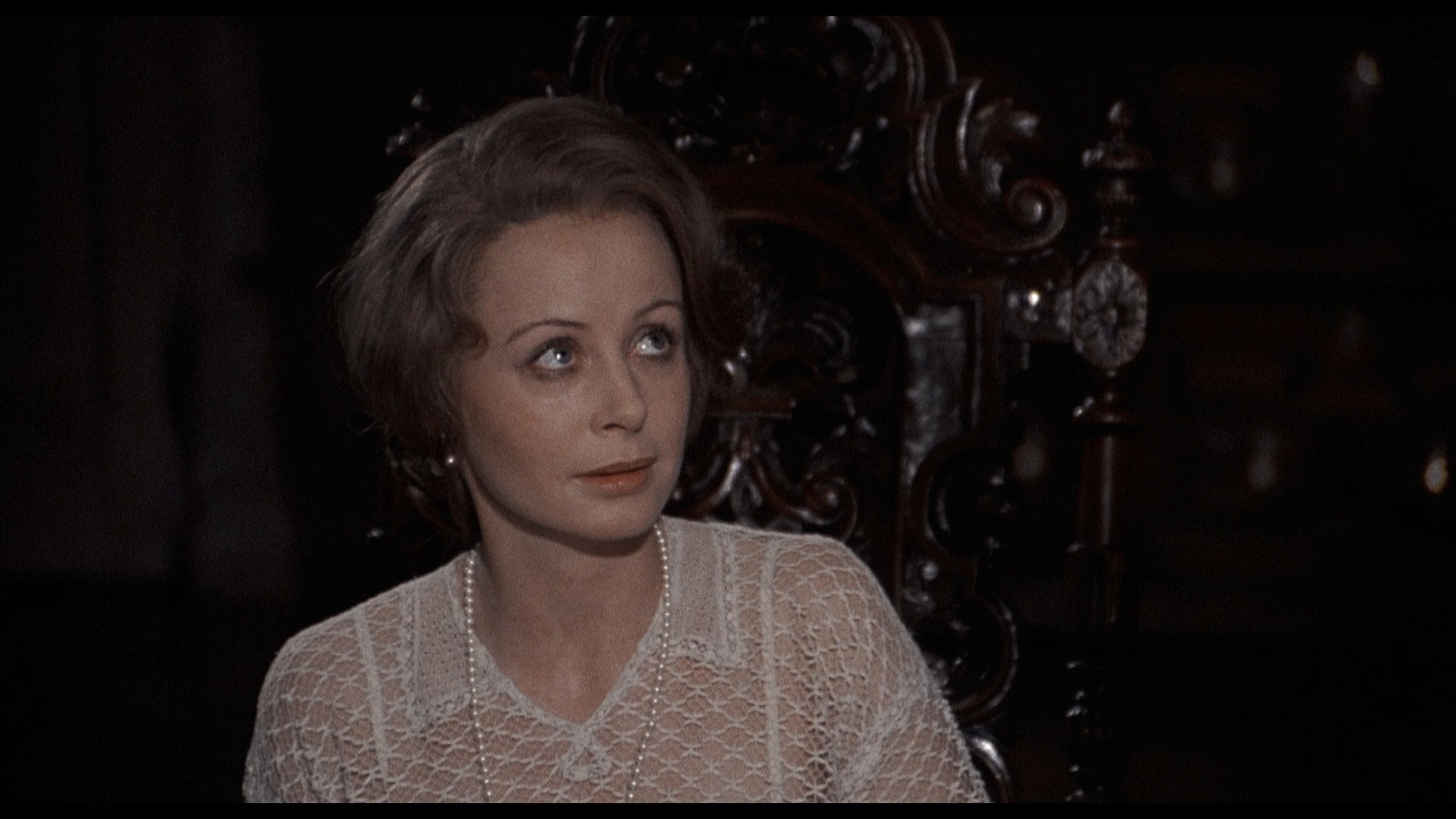 with another adaptation of a book by L.P. Hartley, a writer known for lacing classy, subdued stories with a potent dark streak. The result was The Hireling, which snagged three BAFTAs and tied for the Palme d'Or at Cannes (along with Scarecrow), plus a Special Award for star Sarah Miles. That would seem to be a big calling card for filmmaker Alan Bridges, who was primarily known for TV work at the time, but his feature work after that remained limited and mostly confined to prestige venues including Out of Season, The Return of the Soldier, and The Shooting Party. Given a theatrical push in the U.S. and U.K. by Columbia Pictures, The Hireling earned some admirers at the time but has remained strangely obscure ever since, hardly ever turning up on TV but getting an occasional home video release.
with another adaptation of a book by L.P. Hartley, a writer known for lacing classy, subdued stories with a potent dark streak. The result was The Hireling, which snagged three BAFTAs and tied for the Palme d'Or at Cannes (along with Scarecrow), plus a Special Award for star Sarah Miles. That would seem to be a big calling card for filmmaker Alan Bridges, who was primarily known for TV work at the time, but his feature work after that remained limited and mostly confined to prestige venues including Out of Season, The Return of the Soldier, and The Shooting Party. Given a theatrical push in the U.S. and U.K. by Columbia Pictures, The Hireling earned some admirers at the time but has remained strangely obscure ever since, hardly ever turning up on TV but getting an occasional home video release. 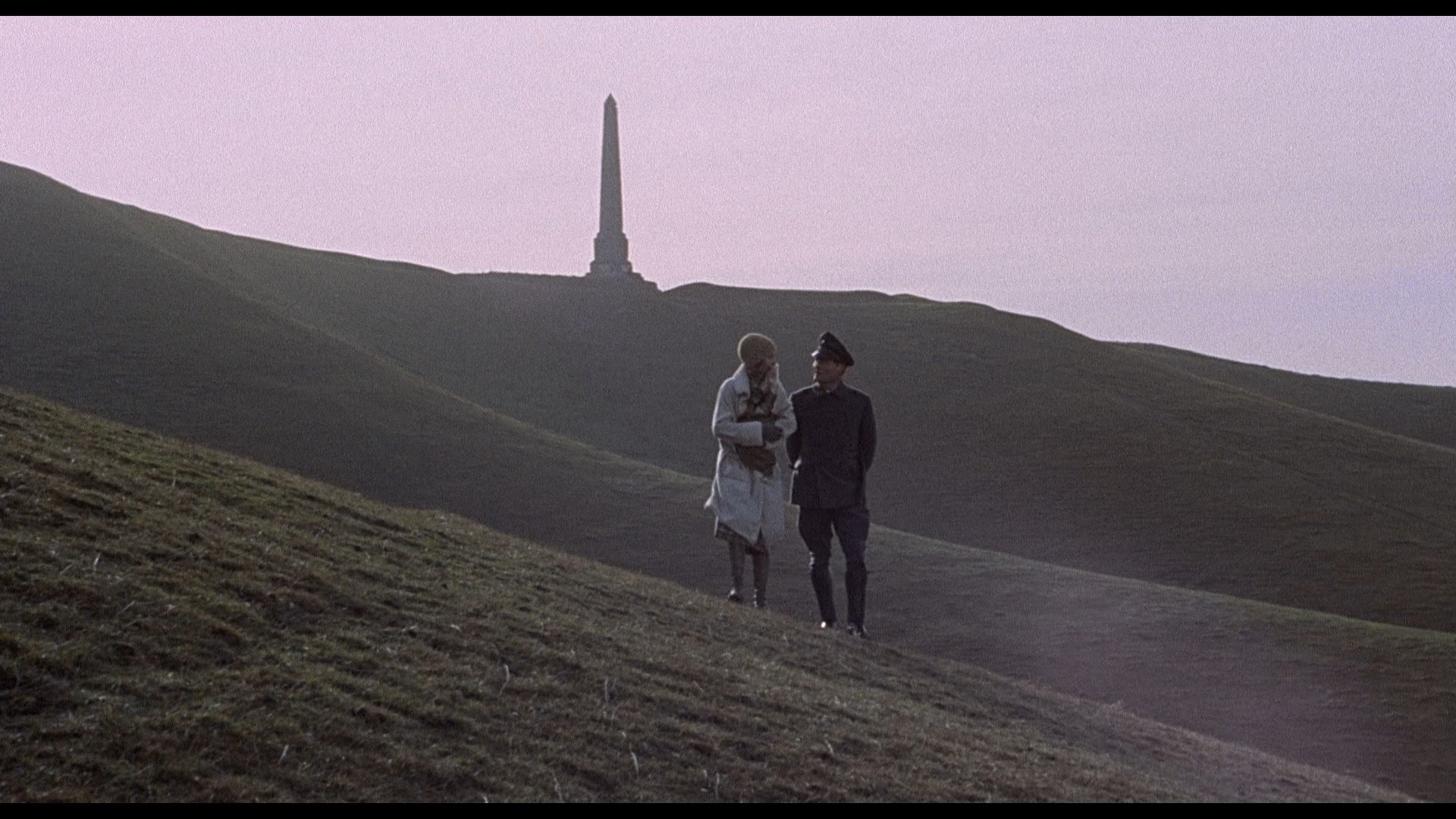 developing an emotional attachment he believes she reciprocates. One event at a local boxing night she hits it off
developing an emotional attachment he believes she reciprocates. One event at a local boxing night she hits it off 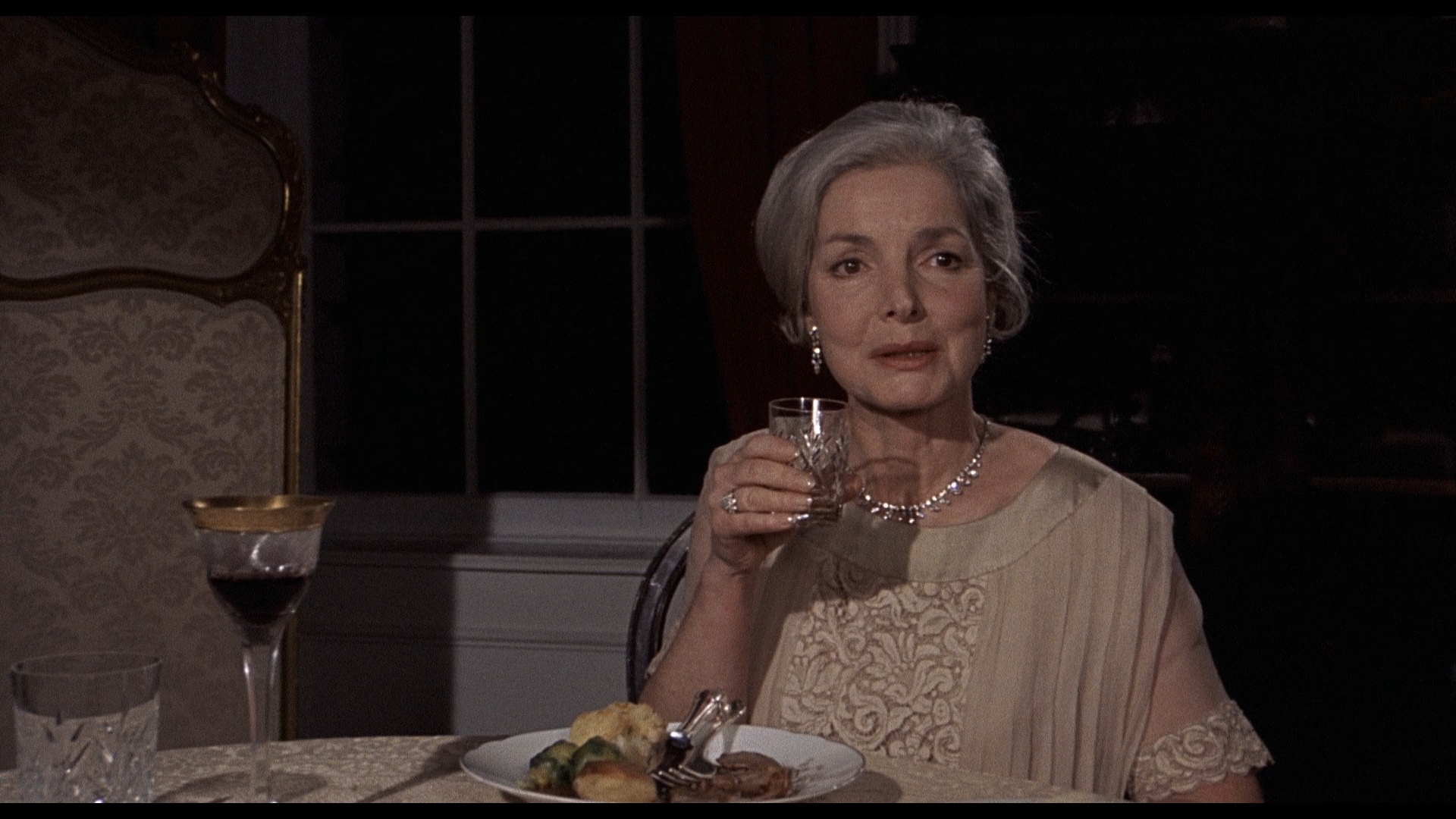 with another veteran, Cantrip (Egan), who now has political aspirations but not the financial means. Though still involved in a relationship with Corinne (Mortimer), Cantrip gets close to Lady Franklin and sets off an emotional time bomb in the chauffeur.
with another veteran, Cantrip (Egan), who now has political aspirations but not the financial means. Though still involved in a relationship with Corinne (Mortimer), Cantrip gets close to Lady Franklin and sets off an emotional time bomb in the chauffeur.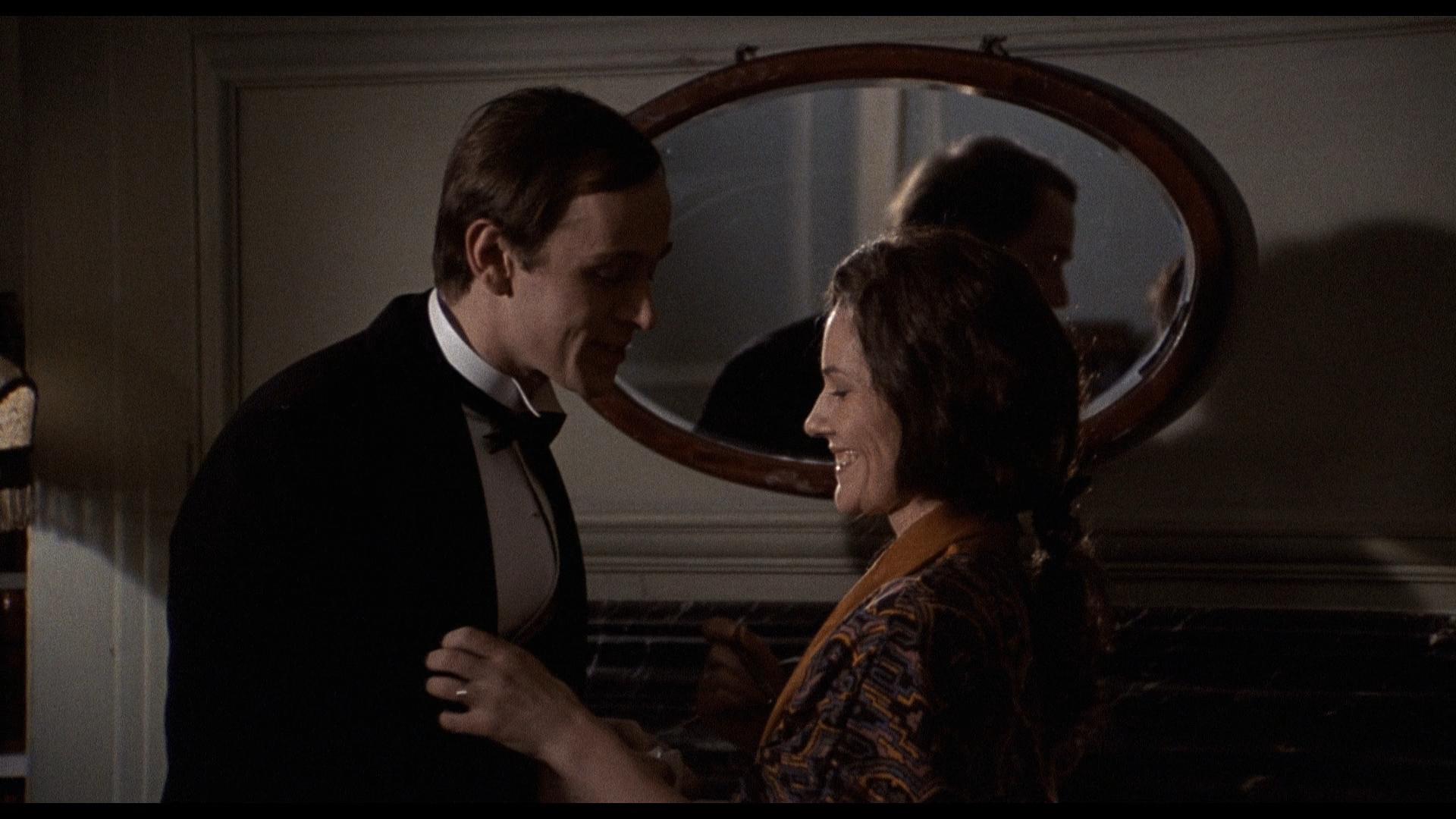 subdued, warm-toned look that often feels like an aged photograph. The LPCM 1.0 English mono audio sounds fine and comes with newly created English SDH subtitles. In
subdued, warm-toned look that often feels like an aged photograph. The LPCM 1.0 English mono audio sounds fine and comes with newly created English SDH subtitles. In 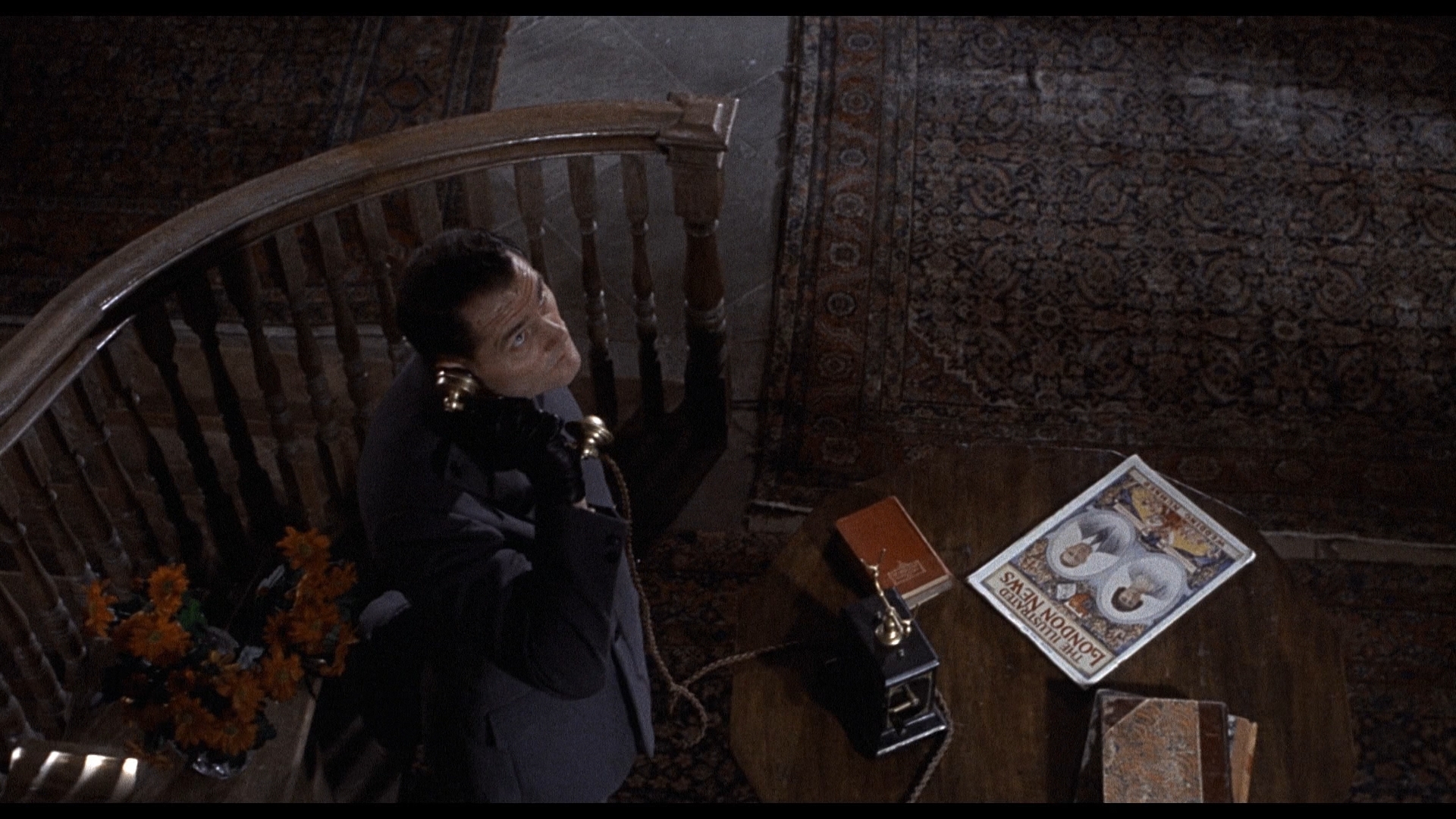 "The Driving Force" (11m13s), Miles, actor Ian Hogg, composer Marc Wilkinson (Blood on Satan's Claw), production manager Hugh Harlow, wardrobe mistress Brenda Dabbs, and production accountant Maureen Newman look back at shooting Bray Studios (the legendary home of Hammer horror), creating the period detail, and capturing the right psychological ambiance for a film that now plays like something of a precursor for darker Merchant-Ivory films like The Remains of the Day. All of the same participants except for Wilkinson turn up again for "The Lady and the Chauffeur" (11m10s) focusing on memories of the two leads including Shaw's approach to shooting the very memorable final scene and working with the locals for some of the outdoor scenes. The film can also be played with the 105-minute "The BEHP Interview with Phyllis Dalton," a 2000 audio interview with the film's costume designer chatting with Rodney Giesler about her life and career in detail including her work on numerous British productions for directors like David Lean and Kenneth Branagh, often traversing around the world for alternating period and modern-day films. Finally you get the theatrical trailer, a Trailers from Hell presentation by Larry Karaszewski, and an image gallery of publicity photos, lobby cards, and international poster art. The limited edition also comes with a 32-page booklet featuring an essay by Peter Cowie, "A Story of Restrained Passion," covering all the nuts and bolts of the film's production and release in detail, a composite of interviews with screenwriter Wolf Mankowitz explaining his approach to the characters and the intention behind some of the changes he made (such as the boxing scene), and a sample of critical reactions.
"The Driving Force" (11m13s), Miles, actor Ian Hogg, composer Marc Wilkinson (Blood on Satan's Claw), production manager Hugh Harlow, wardrobe mistress Brenda Dabbs, and production accountant Maureen Newman look back at shooting Bray Studios (the legendary home of Hammer horror), creating the period detail, and capturing the right psychological ambiance for a film that now plays like something of a precursor for darker Merchant-Ivory films like The Remains of the Day. All of the same participants except for Wilkinson turn up again for "The Lady and the Chauffeur" (11m10s) focusing on memories of the two leads including Shaw's approach to shooting the very memorable final scene and working with the locals for some of the outdoor scenes. The film can also be played with the 105-minute "The BEHP Interview with Phyllis Dalton," a 2000 audio interview with the film's costume designer chatting with Rodney Giesler about her life and career in detail including her work on numerous British productions for directors like David Lean and Kenneth Branagh, often traversing around the world for alternating period and modern-day films. Finally you get the theatrical trailer, a Trailers from Hell presentation by Larry Karaszewski, and an image gallery of publicity photos, lobby cards, and international poster art. The limited edition also comes with a 32-page booklet featuring an essay by Peter Cowie, "A Story of Restrained Passion," covering all the nuts and bolts of the film's production and release in detail, a composite of interviews with screenwriter Wolf Mankowitz explaining his approach to the characters and the intention behind some of the changes he made (such as the boxing scene), and a sample of critical reactions.![]()